News
Keep up to date with the latest developments
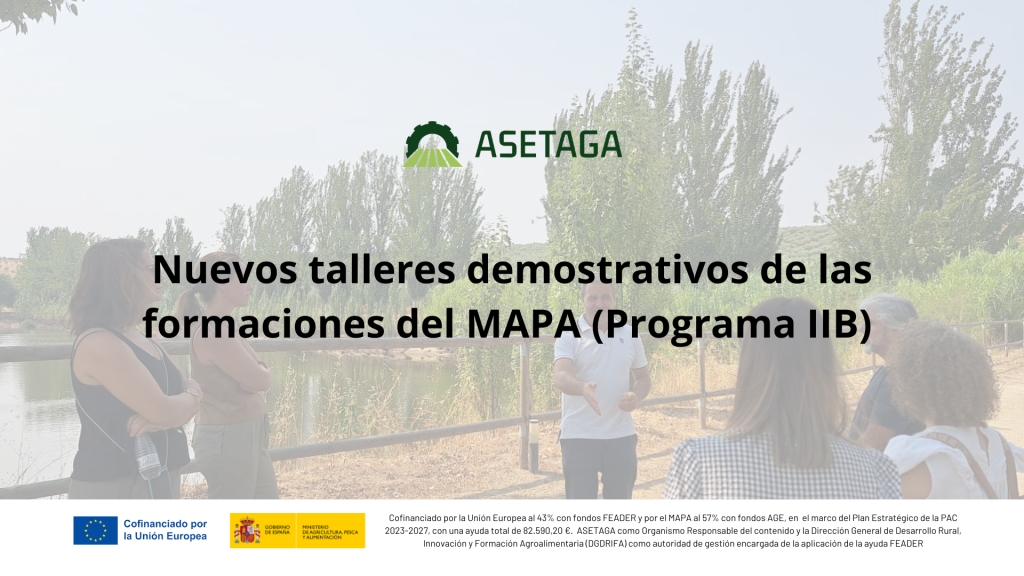
Nuevos talleres demostrativos de las formaciones del MAPA (Programa IIB)
Comenzamos el segundo periodo de las actividades formativas dirigidas a la capacitación en el sector primario e industrial y, al igual que las jornadas de formación, también programaremos nuevos talleres demostrativos en los próximos meses. Aprende a cultivar aguacate de forma eficiente y sostenible El primero de los talleres demostrativos que tenemos programados es el de «Producción eficiente de aguacate: Prácticas
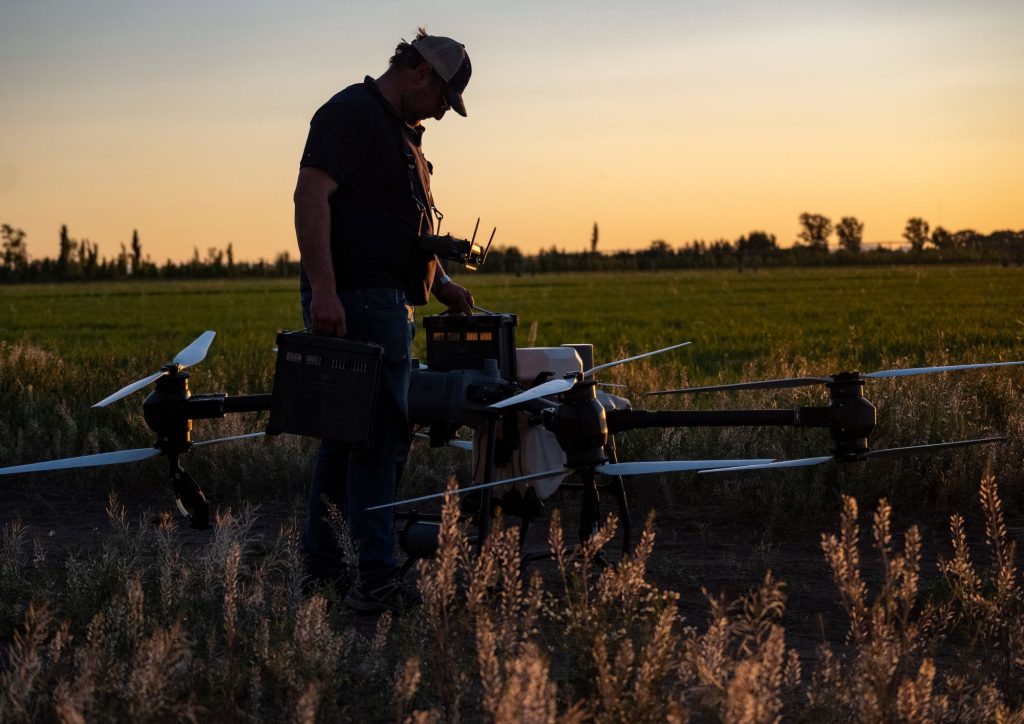
Nuevos perfiles profesionales en el campo
En un contexto donde la escasez de recursos y de alimentos se une a la sobrepoblación mundial, la industria agroalimentaria se hace esencial para poder luchar contra el hambre a nivel global y el cambio climático. Para ello es necesario la adopción de soluciones innovadoras y adaptadas a las necesidades del sector agroalimentario español y la incorporación de nuevos perfiles
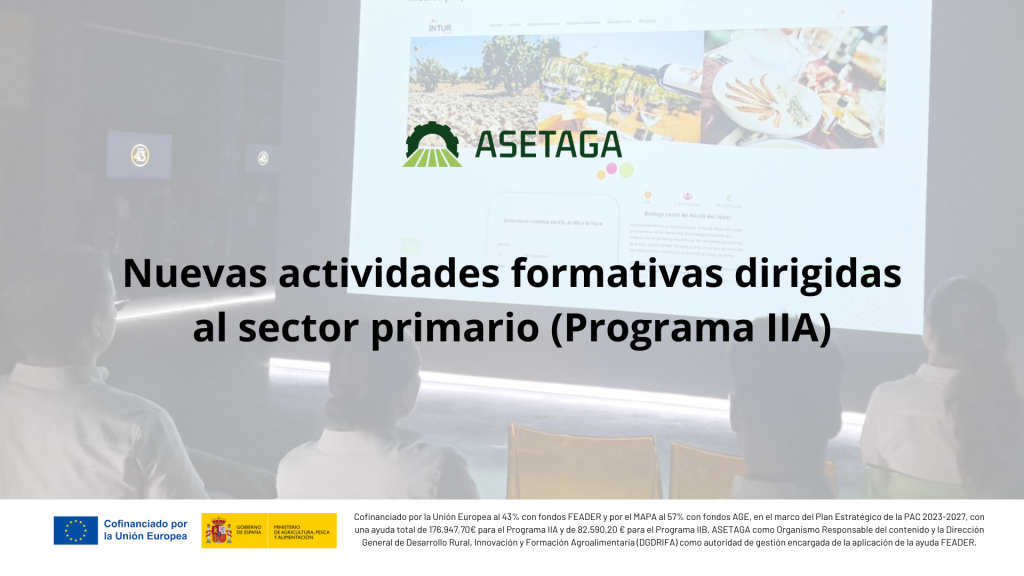
Continuamos con las actividades formativas dirigidas al sector primario
Durante este verano organizamos diversas formaciones abiertas a profesionales de la industria agroalimentaria para mejorar la capacitación de los trabajadores y la modernización del sector. Después del éxito de estas actividades estamos programando un nuevo periodo de talleres y jornadas de formación, de las cuales las primeras ediciones comenzarán este mismo mes de noviembre. ¡A continuación te contamos todos los
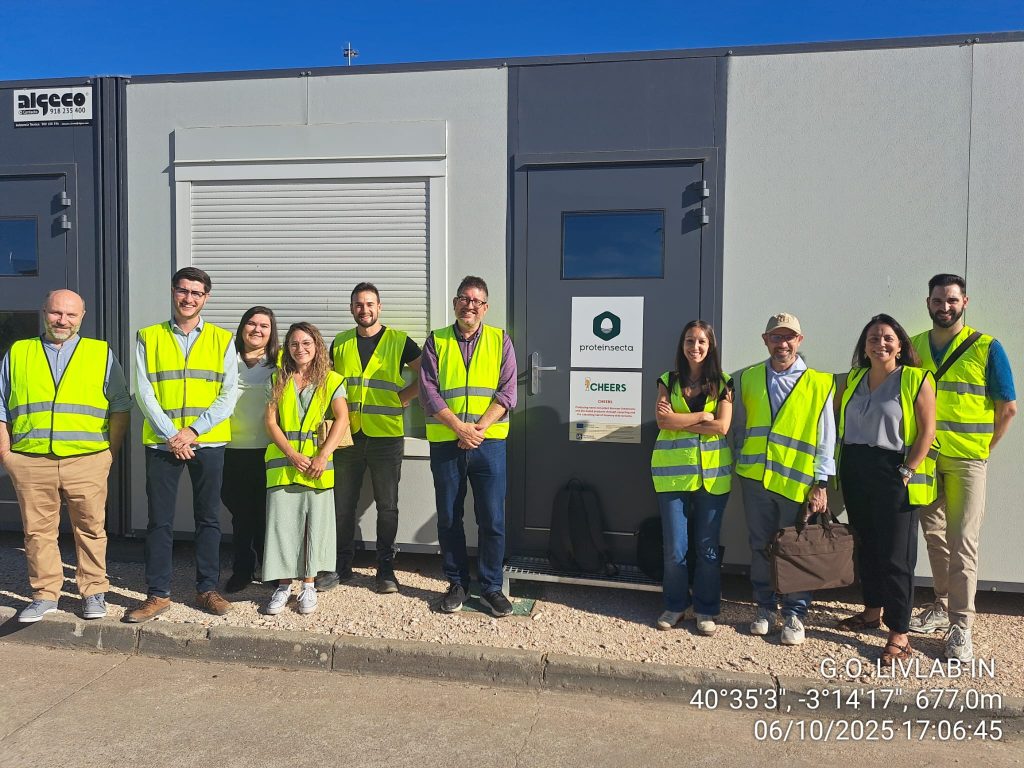
El Grupo Operativo LIVLAB-IN avanza en su segundo periodo con una jornada técnica
El Grupo Operativo LIVLAB-IN celebró una jornada de trabajo el pasado lunes 6 de octubre en Azuqueca de Henares (Guadalajara), con el fin de planificar el segundo periodo de ejecución del proyecto. En el encuentro participaron representantes de todas las entidades que forman parte del consorcio: EURECAT, ASAJA, PROTEINSECTA, IDEAGRO, ISONATUR y ASETAGA. Durante la sesión, los socios analizaron los

Proyecto SOUL: plásticos biodegradables en agricultura para un suelo más sano
Impulsando la innovación europea en bioeconomía circular El proyecto SOUL (Bio-based in Soil applications with Optimal biodegradation in their Ultimate Life) nace para afrontar un reto urgente: la contaminación del suelo agrícola causada por plásticos convencionales de difícil reciclaje y mala gestión al final de su vida útil. SOUL busca sustituir los plásticos fósiles por plásticos biodegradables en agricultura, diseñados
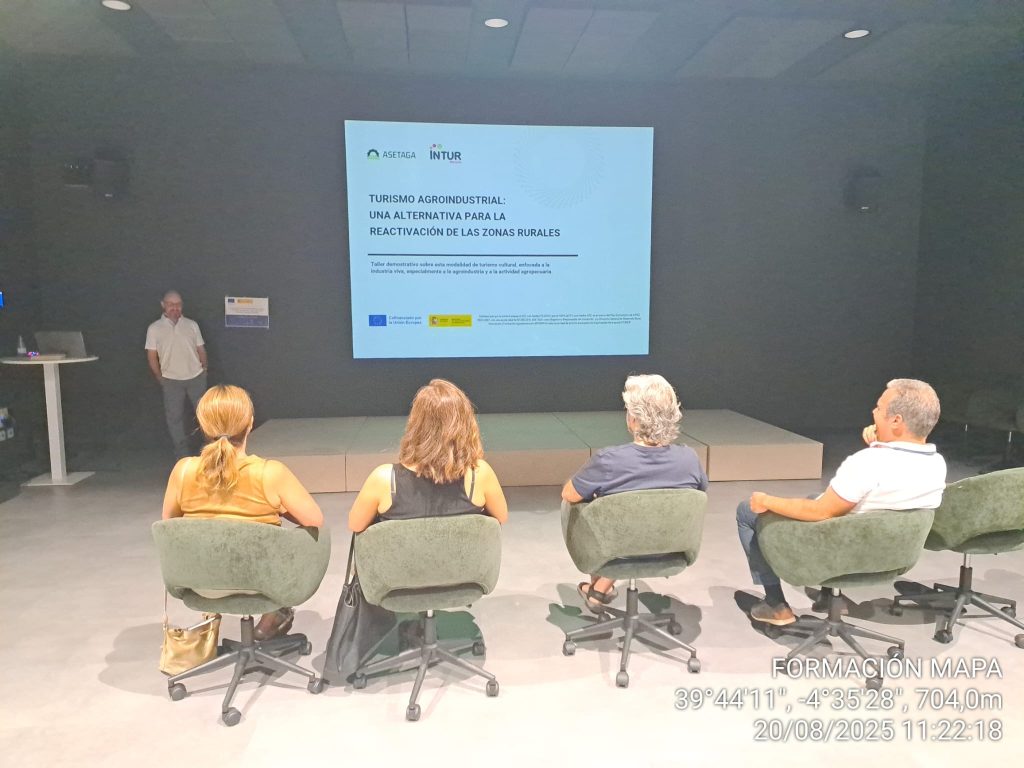
Apúntate a las actividades formativas de agosto
Como ya avanzábamos en la entrada anterior, Asetaga está realizando dos programas de formación (Programas IIA y IIB) y transmisión de conocimientos destinados a los profesionales de la industria agroalimentaria. Con estos programas queremos impulsar la innovación y la sostenibilidad en el sector primario, además de favorecer la colaboración entre PYMES y otras entidades, y acelerar el desarrollo rural. Contaremos

Actividades formativas e intercambio de conocimientos en el marco de la PEPAC 2023-2027
Desde el marco del Plan Estratégico de la Política Agraria Común (PEPAC) 2023-2027 se han creado unos programas temáticos para el intercambio de conocimientos y actividades formativas en el sector primario. En ASETAGA estamos desarrollando dos programas de formación según una de las líneas que propone el PEPAC de actividades no relacionadas con las tecnologías de digitalización: Objetivos de ASETAGA
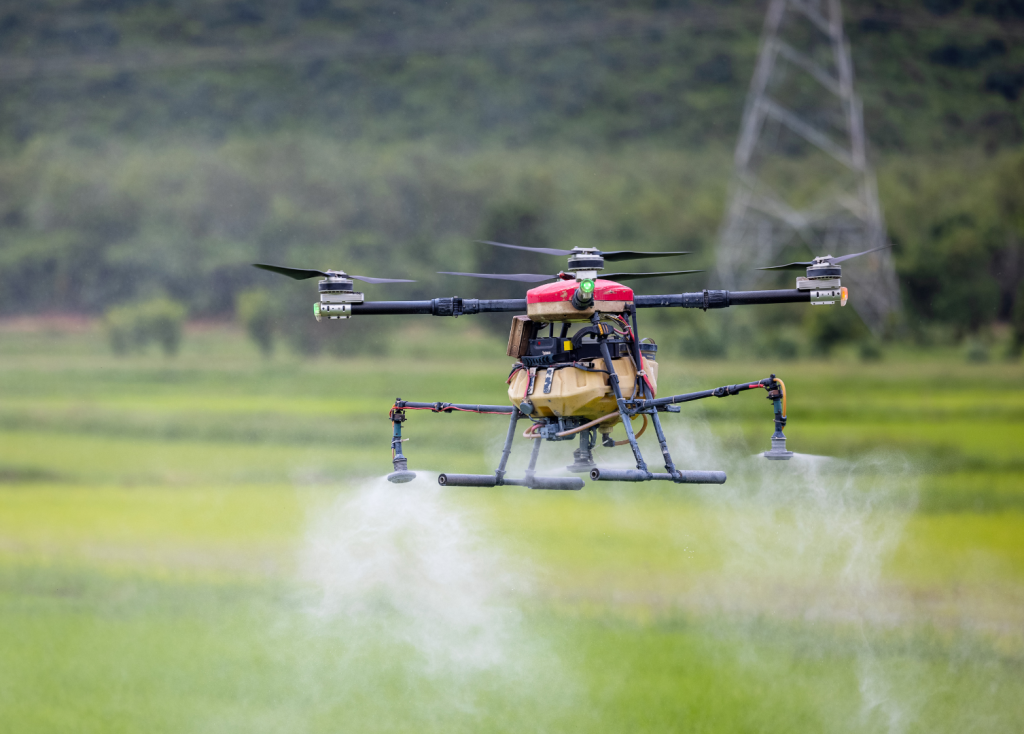
Drones en la agricultura española vs resto de Europa
La gran mayoría de países de Europa se suman al gran avance de la robotización agrícola para afrontar los diferentes desafíos que afectan al sector a nivel mundial: sobrepoblación, escasez de recursos, cambio climático, etc. Francia, ya ha dado los primero pasos para adaptar la normativa del uso de drones en la agricultura a su legislación. Sin embargo, España se

SANDACH: Qué son y por qué son clave en la sostenibilidad del sector agroalimentario
En el camino hacia una economía circular en el ámbito agroalimentario, los SANDACH (Subproductos Animales No Destinados al Consumo Humano) emergen como una oportunidad para transformar residuos en recursos estratégicos. En esta entrada te explicamos en detalle qué son, cómo se regulan y qué usos pueden tener. ¿Qué son los SANDACH? Los SANDACH se generan en procesos vinculados a la
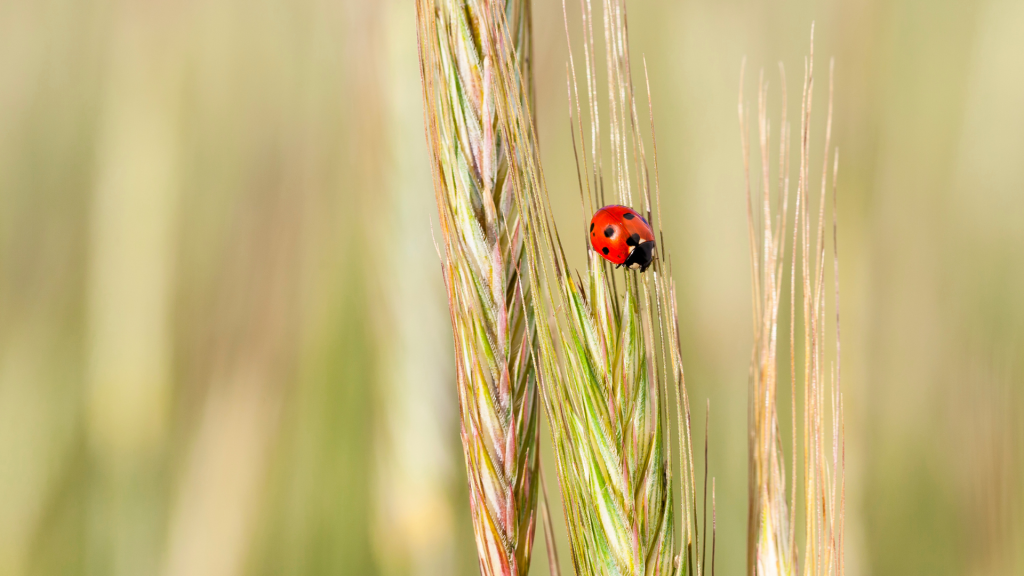
Bioprotección de cultivos y manejo integrado de plagas: claves de la agricultura sostenible
La transición hacia una agricultura sostenible y libre de químicos es una prioridad global. En este contexto, estrategias como la bioprotección de cultivos y el manejo integrado de plagas (MIP) emergen como soluciones eficaces para mejorar la productividad agrícola, proteger el medio ambiente y garantizar alimentos saludables. ¿Qué es la bioprotección de cultivos? La bioprotección agrícola es el uso de
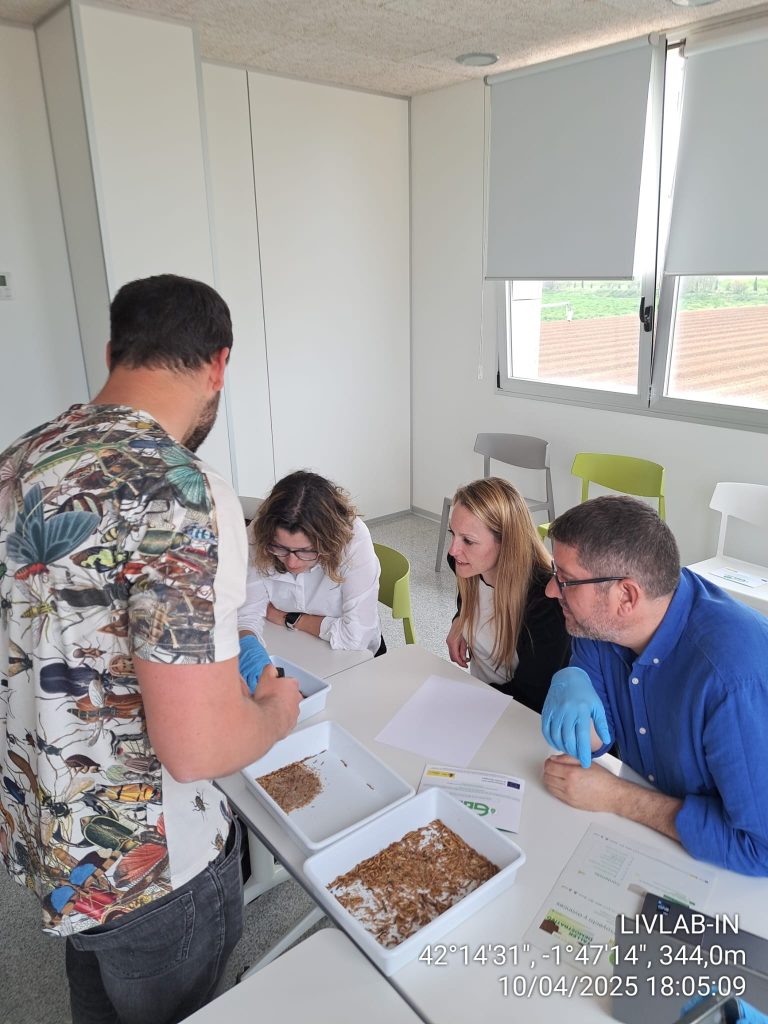
Funcionamiento de una granja de insectos: Taller demostrativo de GO Livlab-In
El pasado jueves 10 de abril se realizó el taller demostrativo sobre el funcionamiento de una granja de insectos para el Grupo Operativo Livlab-In en Milagro (Navarra), en las instalaciones del socio colaborador ISONATUR. En este encuentro con socios y otros interesados en la insecticultura se pudo ver de forma práctica el potencial de los insectos en la revalorización y
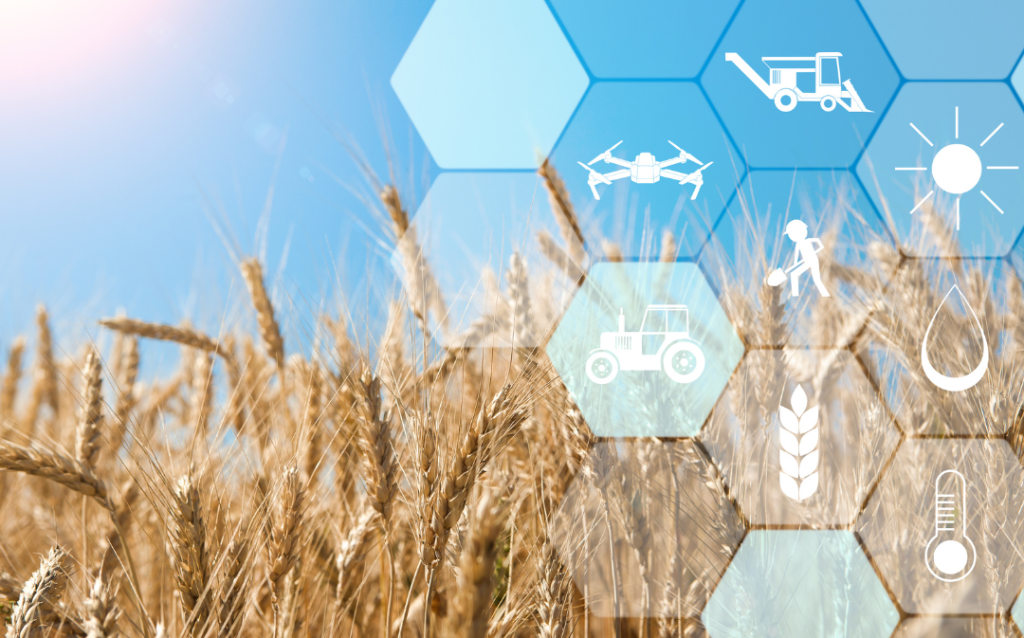
Agricultura de Precisión y Agricultura 4.0: La Revolución Tecnológica en el Campo
La evolución del sector primario ha sido vertiginosa en las últimas décadas gracias a la introducción de tecnologías innovadoras. La modernización de la agricultura ha permitido una gestión más eficiente de los recursos y una mayor protección del medio ambiente. En este contexto, han surgido la Agricultura de Precisión (Agricultura 3.0) y la Agricultura 4.0, ambas enfocadas en la optimización

Pueblos inteligentes o Smart Villages
¿Qué son los pueblos inteligentes o Smart Villages? El concepto de Smart Villages fue lanzado en 2017 por la acción de la UE para desarrollar pueblos inteligentes. Se trata de una herramienta territorial importante para “fortalecer el tejido socioeconómico de las zonas rurales” y “modernizar la agricultura y las zonas rurales fomentando y compartiendo conocimientos, innovación y digitalización”. Está concebido

El nuevo Reglamento de Envases de la UE: un paso hacia la sostenibilidad con desafíos pendientes
En un contexto donde la sostenibilidad se ha convertido en una prioridad global, la Unión Europea sigue promoviendo medidas estrictas para reducir el impacto ambiental de los residuos. Comenzó a dar pasos en la lucha contra los residuos y el desperdicio de materiales con la implementación del Reglamento (UE) 2025/40 de Envases y Residuos de Envases (PPWR, por sus siglas
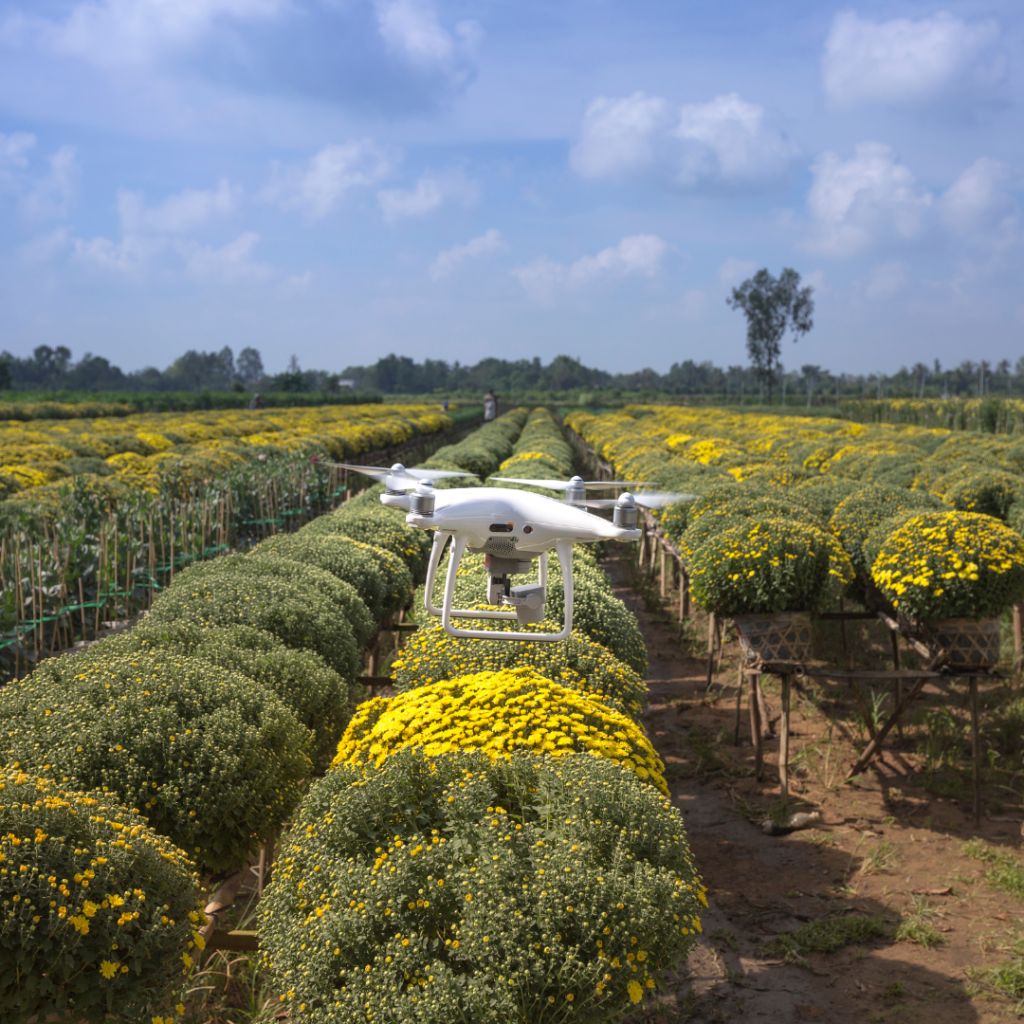
Transformación tecnológica en el sector primario
¿Qué entendemos por transformación tecnológica en el sector primario? Se trata del uso de dispositivos tecnológicos, tales como satélites, ordenadores, drones, etc., en los procesos de producción agrícola y ganadera. La adopción de tecnología innovadora en los sistemas de producción y organización de este tipo de empresas permite al sector primario ser más competitivo, adoptar soluciones innovadoras a los desafíos
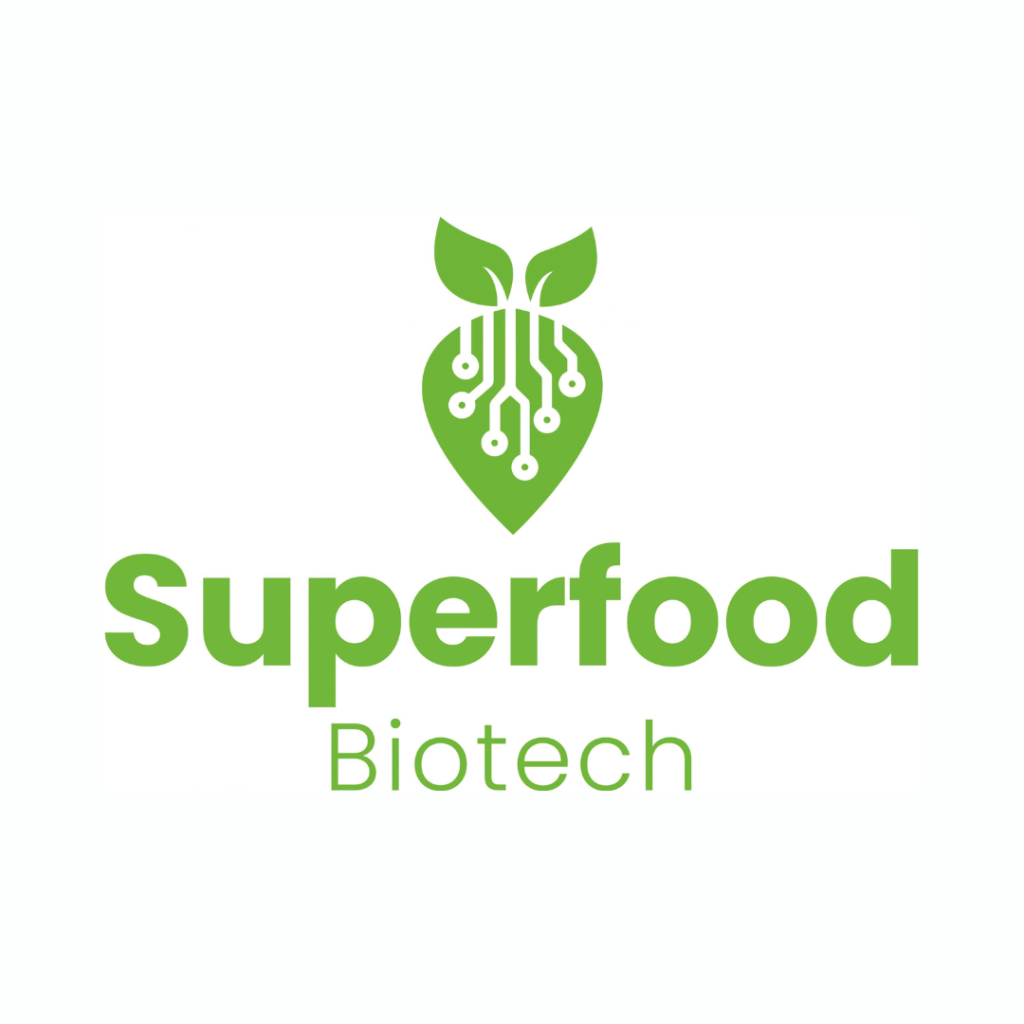
Grupo Operativo Superfood Biotech
GO Superfood Biotech: Generación agronómica de nuevos SUPERALIMENTOS bio-enriquecidos en finca. Se trata de un proyecto innovador para mejorar el contenido de los nutrientes finales en productos hortofrutículas y generar superalimentos biosaludables a través de la agricultura. A través del Grupo Operativo Superfood Biotech, buscamos transformar la agricultura y la industria alimentaria para mejorar la calidad nutricional y funcional de
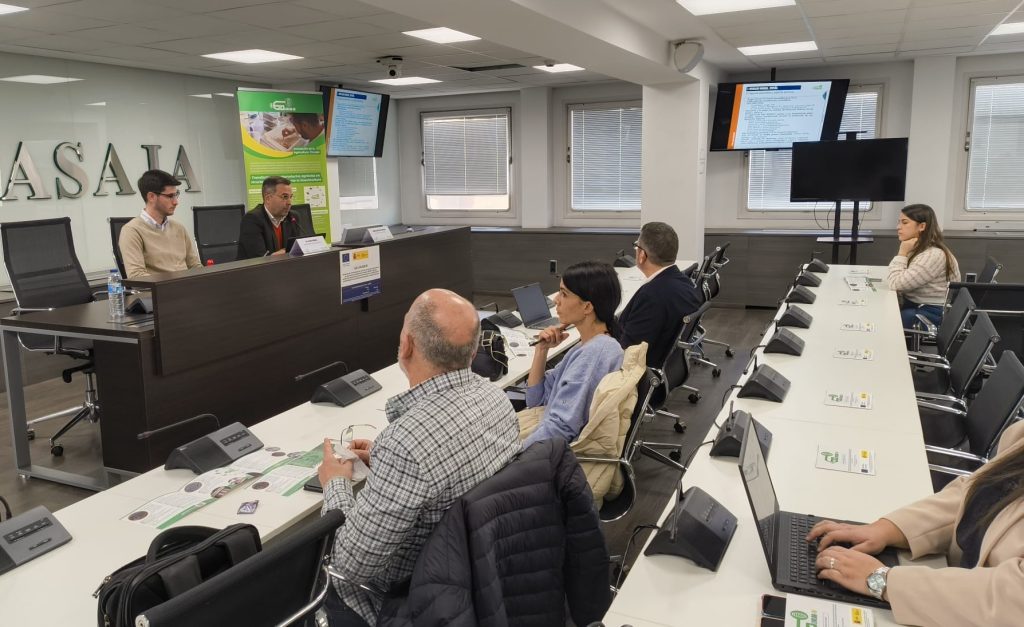
Jornada de presentación GO LIVLAB-IN: Innovación en la economía circular
Go Livlab-In: La innovación en la economía circular Ayer se presentó el grupo operativo Go Livlab-In en una jornada que reunió a todos los socios e interesados en el proyecto. En la misma se habló de la importancia de la insecticultura para la transformación de la industria agroalimentaria y para mejorar el futuro y la sostenibilidad del sector. El grupo
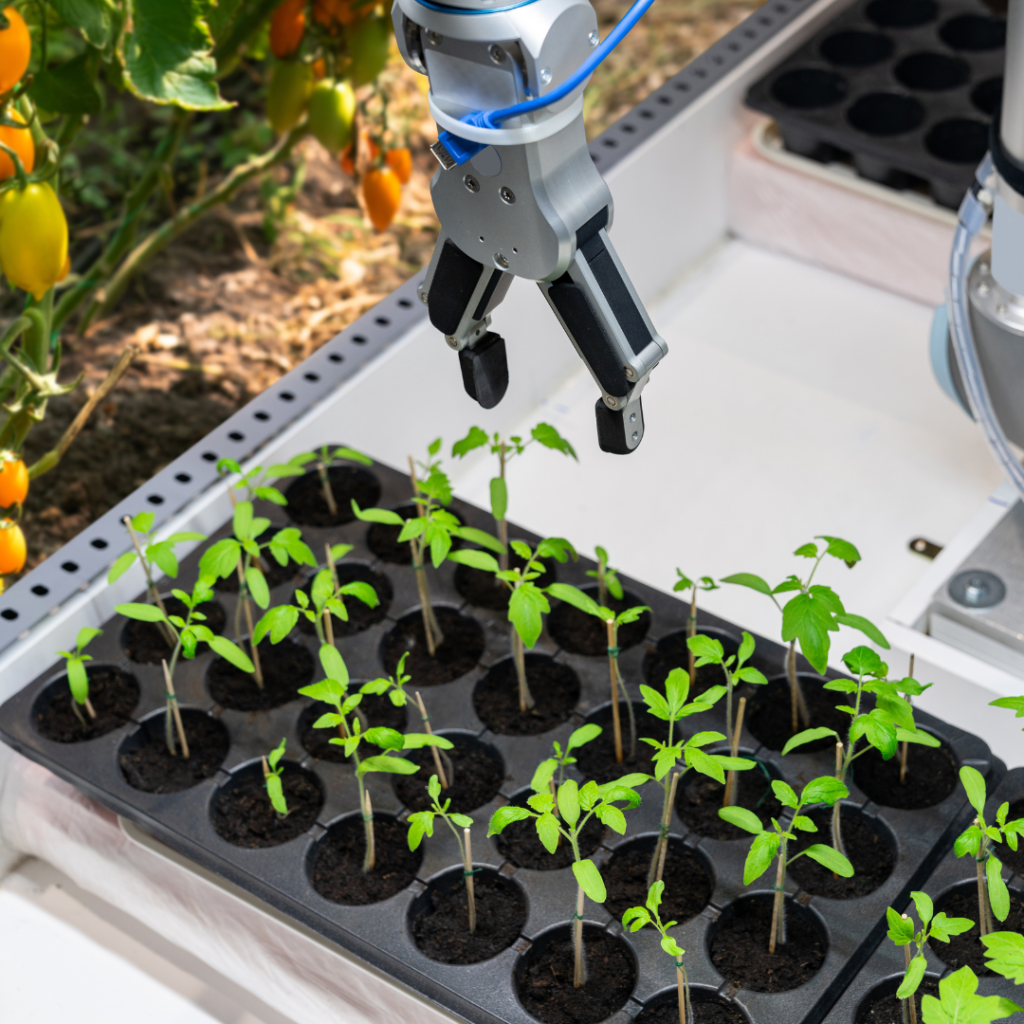
Tendencias en innovación agroalimentaria 2025
El sector agroalimentario está viviendo una revolución y en 2024 hemos visto las tendencias marcan el camino hacia un futuro más sostenible, eficiente y tecnológico. Desde la agricultura regenerativa hasta la digitalización de los procesos y las proteínas alternativas, cada innovación nos acerca más a alimentar el mundo cuidando el planeta. Para este nuevo año surgen nuevas innovaciones respecto al
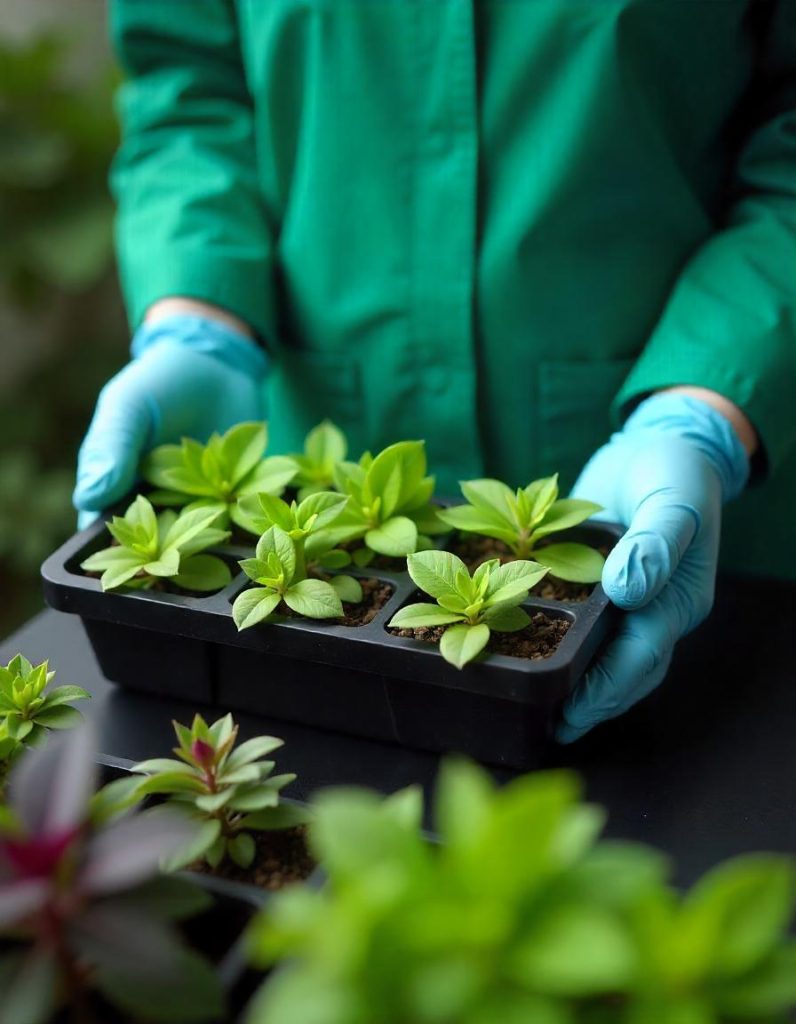
Desafíos clave de la Industria Agroalimentaria para el 2025.
El sector de la industria agroalimentaria está pasando por una época de cambios y adaptaciones a los nuevos tiempos de la revolución tecnológica y de las últimas novedades en innovación. A lo largo de las últimas décadas este sector ha pasado de centrarse principalmente en las actividades que tradicionalmente siempre ha llevado a cabo, a incorporar las últimas novedades en

Estrategias para impulsar el Desarrollo Rural Sostenible
Entendemos el desarrollo rural sostenible como el crecimiento económico del medio rural y mejora de la competitividad del sector primario hacia un futuro más sostenible que implique la mejora de la calidad de vida de la población rural. El medio rural sigue siendo un motor esencial de la economía y de la sociedad española. Ocupa el 90% del territorio según
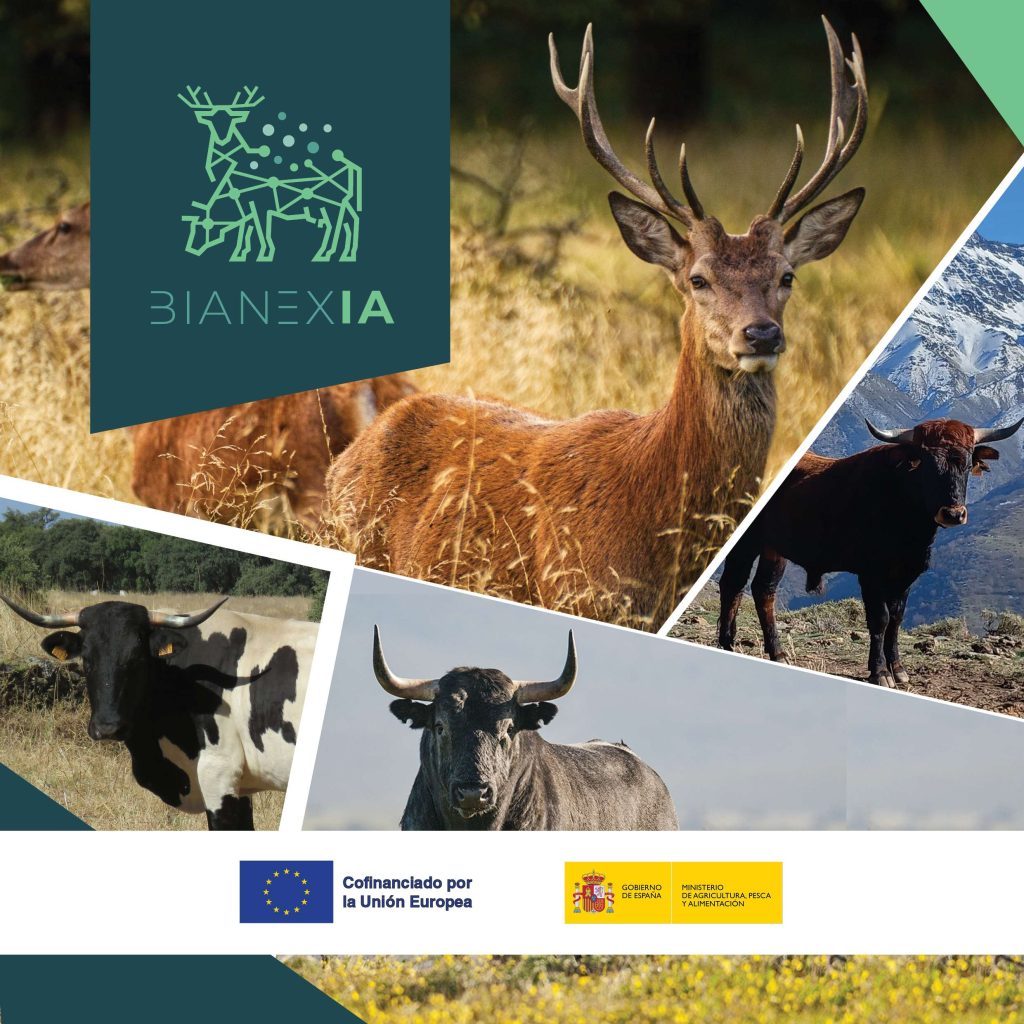
BIANEXIA: SALUD Y BIENESTAR ANIMAL CON IA
BIAnexia es la Plataforma Integral IoT para Mejorar la Explotación Ganadera Extensiva y Cinegética. El proyecto va dirigido al desarrollo de una plataforma digital para la monitorización, la gestión técnico económica y el apoyo a la toma de decisiones en fincas cinegéticas y ganaderías en régimen extensivo basada en sensores del Internet de las Cosas (IoT) y en algoritmos de
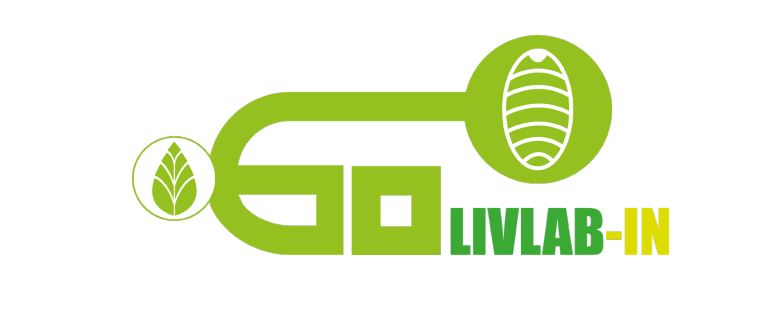
GOLIVLAB-IN: Transformando el sector agrícola con la insecticultura
La insecticultura revoluciona la agricultura sostenible El proyecto GO LIVLAB-IN tiene como objetivo principal transformar el sector agroalimentario revalorizando los subproductos agrícolas en recursos valiosos gracias al uso de la insecticultura. De esta forma, se convierte en una solución innovadora que promueve un modelo de producción más sostenible y contribuyendo a la economía circular. Este proyecto aborda diferentes problemas como
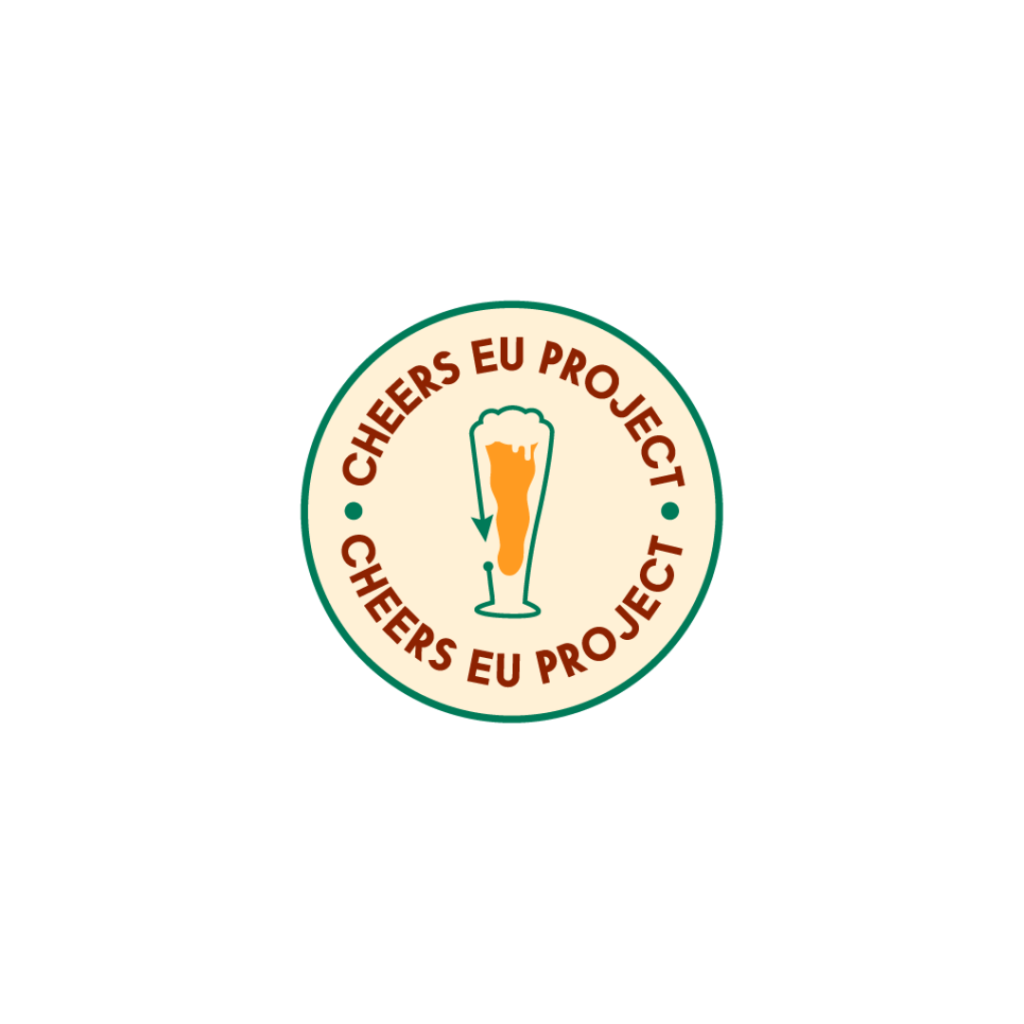
CHEERS EU-PROJECT CELEBRATES 2 YEARS
The EU-funded project is developing two different production platforms to transform side-streams of the beer production process into five innovative products. After two years been focused on developing innovative solutions to reduce the environmental impact of brewing, CHEERS project has annunced its first results. The CHEERS insect plant is up and running! On 26 November, the construction of the pilot

Study shows pesticides go beyond fruit skins
The presence of pesticides on fruits and vegetables is a growing concern for consumers, who often choose to peel or thoroughly wash these foods to reduce exposure to contaminants. However, a recent study suggests that these measures may not be enough to completely eliminate pesticide residues. According to the European Food Safety Authority
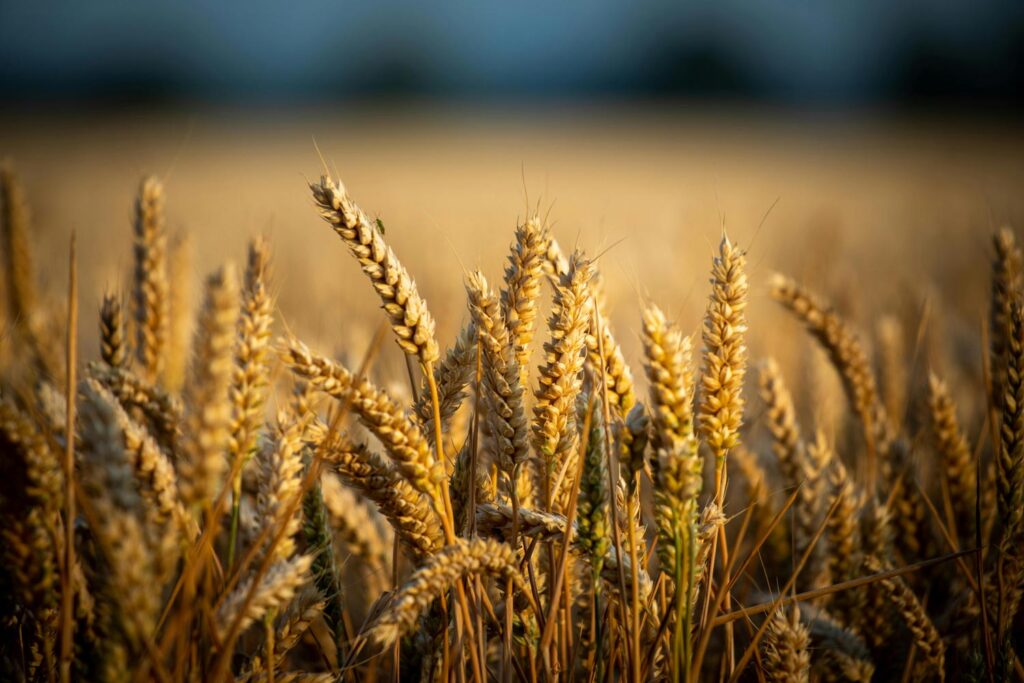
First genetic map of wheat DNA repeat sequences developed
A team from the CSIC and the University of Granada shows that the repeated DNA sequences in wheat chromosomes determine their ability to associate, which is key to ensuring their fertility. Researchers from the Institute for Sustainable Agriculture (IAS) of the Spanish National Research Council (CSIC) and the University of Granada have developed the
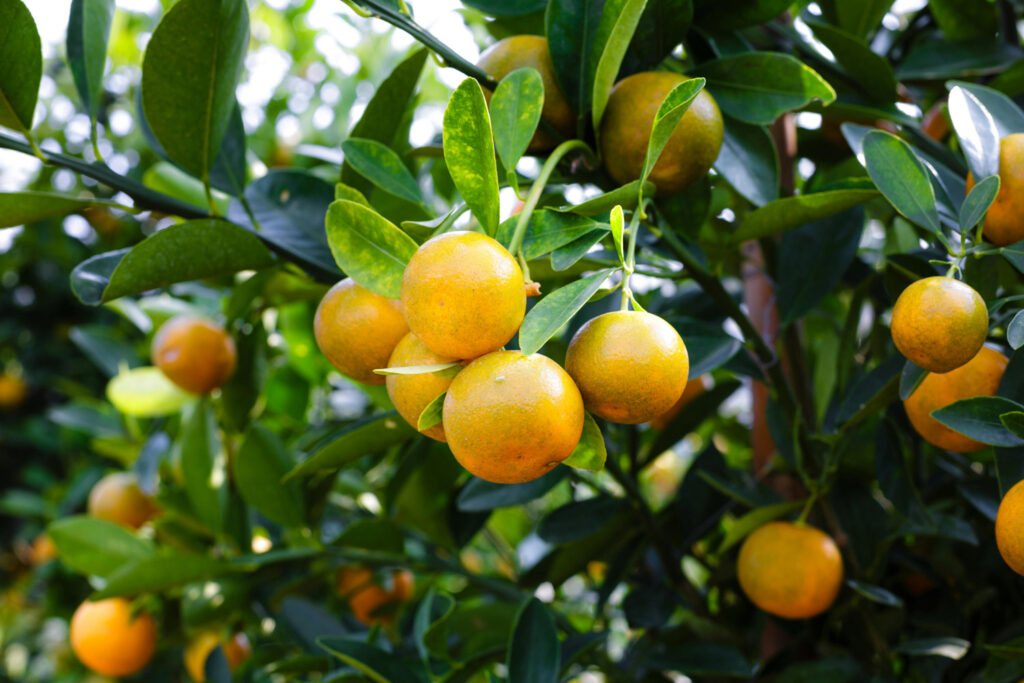
CSIC research aims to achieve sustainable agriculture for citrus production in Spain
The Consejo Superior de Investigaciones Científicas (CSIC), through the Plant Genetics and Development group of the Galician Biological Mission (MBG), coordinates the project ‘Maximising the benefits of cover crops through winter legume species selection and crop management (MAXI-CoberLEG)’, financed within the framework of the Strategic Plan for the
